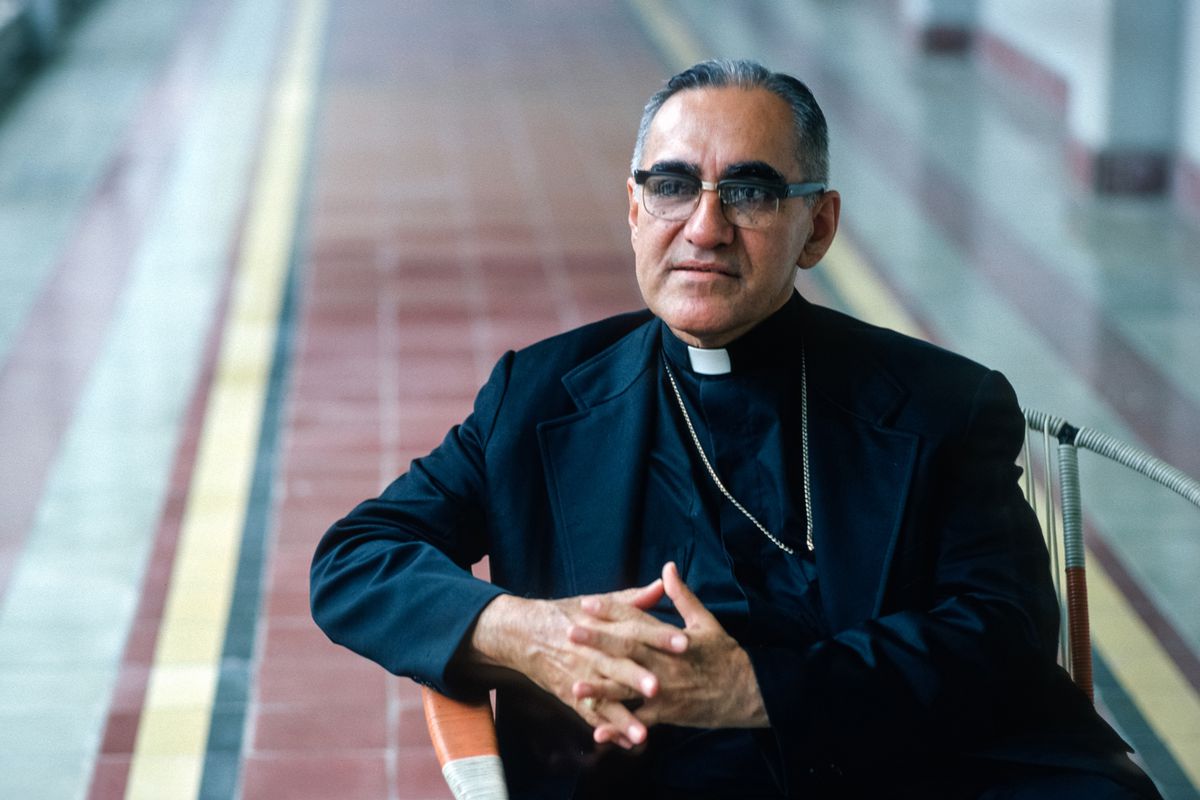
10:7 So Jesus again said to them, “Truly, truly, I say to you, I am the door of the sheep. 8 All who came before me are thieves and robbers, but the sheep did not listen to them. 9 I am the door. If anyone enters by me, he will be saved and will go in and out and find pasture. 10 The thief comes only to steal and kill and destroy. I came that they may have life and have it abundantly.
– John 10:7-10
Throughout the Bible, God is depicted as a Good Shepherd. From Genesis to Revelation, one of the clearest images the Bible uses to show the love of God for humanity is God working, serving and leading His people as a Good Shepherd. Without a Good Shepherd all the sheep in the world would have a great deal of difficulty finding their daily food, place to live and protection and security from all kinds of animals and thieves who threaten their livelihood. God is doing exactly the same for us. Our life can be in great danger if God is not providing us His protection and if God is not leading our life through the deepest and darkest jungle of this world. On top of that, all of those things that we need to sustain our life, such as our daily nourishment, place to live, health, are given to us by God. Therefore, without a doubt, we can clearly and boldly confess, and declare, that God is our Good Shepherd. It’s only a fool who thinks that they can sustain their life by providing everything that is needed, such as safety, security, health, and all the necessary nourishments to sustain our life — including the clean oxygen that we are breathing every second. God is the Giver of life, God is the Protector of life and God is the only Sustainer of our life.
The Bible also tells us there is another entity or agency which is trying to work in opposition to what God is doing for us. The Bible calls that entity the thief! That is clearly Satan. That enemy comes into our lives to kill, to steal and to destroy. That enemy is fully capable of doing that. There is one fact that we can assert on top of that reality — there is no way that we can protect ourselves from the vicious attack that this enemy is trying to unleash over our lives. Our God, He’s our Shepherd — therefore we shall not want anything because He makes us lie down in green pastures. Even though we walked through the valley of the shadow of death, we will fear no evil because His rod and His staff are always with us because of our covenant relationship with Him.
Prayer: Dear Heavenly Father, thank You for having all of us as your sheep. We did not choose You, but You chose us. We did not come to You, but You came to us. Thank You for Your grace. Thank You for Your love and thank You for Your forgiveness. We are clearly like sheep, with no wisdom and no knowledge of life. We make bad choices and take wrong turns in life. But You are always there to protect us and to provide for us as our Good Shepherd. Because of You we have life, and because of You we have a future. In Jesus’ name. Amen.
Lenten Response: Take time to confess today the areas in which you try to serve as your own provider and shepherd, instead of acknowledging the Good Shepherd.
Devotion written by the Rev. Dr. Gemechis Buba
Morning Psalms
Evening Psalms
Óscar Arnulfo Romero, Archbishop of San Salvador, Martyr, 1980 (March 24)

About the Commemoration
Óscar Arnulfo Romero y Galdámez was born in 1917 in Ciudad Barrios, in the mountains of El Salvador near the border with Honduras. He left school at twelve and began an apprenticeship as a carpenter. He showed promise as a craftsman, but while still very young he went to seminary. He trained at San Miguel and San Salvador and completed his theological studies in Rome. He was ordained priest there in 1942, but because of the Second World War no member of his family was present. He returned to El Salvador in 1944 and served as a parish priest in the country before becoming rector of the interdioccsan seminary of San Salvador. In 1946 he became secretary of the Bishops’ Conference of El Salvador and remained in this post for twenty-three years.
He was consecrated bishop in 1970 and served as assistant to the aging Archbishop of San Salvador. In 1974 he was made Bishop of Santiago de Maria and in 1977 Archbishop of San Salvador. There was growing unrest in the country because of social injustices and widespread poverty, and the country was in virtual civil war. He had barely begun his work as archbishop when two of his priests were murdered. Romero demanded an inquiry into the events and set up a permanent commission for the defense of human rights. Accusations and attacks continued, even from within the Church. He continued to condemn all forms of what he called “the mysticism of violence.”
In the evening of March 24, 1980, he was celebrating Mass in the small chapel of the Hospital of Divine Providence, which had been his home since his enthronement as archbishop. As he was about to elevate the bread and wine at the Offertory, Óscar Arnulfo Romero was shot through the heart. Minutes before, he had said in his sermon, “Those who surrender to the service of the poor through love of Christ, will live like the grain of wheat that dies. It only apparently dies. If it were not to die, it would remain a solitary grain. The harvest comes because of the grain that dies….We know that every effort to improve society, above all when society is so full of injustice and sin, is an effort that God blesses, that God wants, that God demands of us.” Aware that his life was in danger, he had already announced, “You may say, if they succeed in killing me, that I pardon and bless those who do it. Would, indeed, they might be convinced not to waste their time. A bishop will die, but God’s Church, which is the people, will never perish.”
Óscar Romero was added to the calendar in the Spanish-language service book produced by the Evangelical Lutheran Church in America, Libro de Liturgica y Cántico (Minneapolis: Augsburg Fortress, 1998); and is on the calendar in Evangelical Lutheran Worship. He is on the 1997 Church of England calendar, the Christian Year, and is among those commemorated in new statues on the west front of Westminster Abbey. He was added to the Episcopal (Anglican) calendar in Lesser Feasts and Fasts 2006.
Excerpts from New Book of Festivals & Commemorations: A Proposed Common Calendar of Saints by Philip H. Pfatteicher, copyright, 2008 by Fortress Press, an imprint of Augsburg Fortress.
See also: Óscar Romero
Reading
A Meditation Attributed to Archbishop Romero, “Prophets of a Future Not Our Own”
It helps, now and then, to step back and take the long view. The kingdom is not only beyond our efforts, it is beyond our vision.
We accomplish in our lifetime only a tiny fraction of the magnificent enterprise that is God’s work. Nothing we do is complete, which is another way of saying that the kingdom always lies beyond us.
No statement says all that could be said. No prayer fully expresses our faith. No confession brings perfection. No pastoral visit brings wholeness. No program accomplishes the Church’s mission. No set of goals and objectives includes everything.
This is what we are about: We plant seeds that one day will grow. We water seeds already planted, knowing that they hold future promise. We lay foundations that will need further development. We provide yeast that produces effects beyond our capabilities.
We cannot do everything, and there is a sense of liberation in realizing that. This enables us to do something, and to do it very well. It may be incomplete, but it is a beginning, a step along the way, an opportunity for God’s grace to enter and do the rest.
We may never see the end results, but that is the difference between the master builder and the worker. We are workers not master builders, ministers not messiahs. We are prophets of a future not our own.
http://www.nextreformation.com/wp-admin/general/romero.htm (accessed October 10, 2007). The meditation was written by Ken Untener (1937-2004), later Bishop of Saginaw, for John Cardinal Dearden in November 1979 for a celebration of departed priests; it has been widely attributed to Archbishop Romero.
Propers
Eternal God of justice and love, you hold in your mind a vision of creation as you intend it to be: By the example of your servant Oscar Arnulfo Romero give us such a view of your work that we may commit the future to you, confident that what we do in your Name will, in your good time, grow and flourish to your glory; through your Son Jesus Christ our Lord, who lives and reigns with you and the Holy Spirit, one God, now and forever.
PHP
Readings: Ezekiel 20:40-42; Psalm 5; Revelation 6:9-11; Mark 8:34-38
Hymn of the Day: “Son of God, eternal Savior” (LBW 364, LSB 842, ELW 655)
Prayers: For compassion for all in need; For social justice; For the poor and the oppressed; For an end to violence.
Preface: A Saint (3) (BCP)
Color: Red

This daily prayer and Bible reading guide, Devoted to Prayer (based on Acts 2:42), was conceived and prepared by the Rev. Andrew S. Ames Fuller, director of communications for the North American Lutheran Church (NALC). After a challenging year in the midst of the COVID-19 pandemic, we have been provided with a unique opportunity to revitalize the ancient practice of daily prayer and Scripture reading in our homes. While the Reading the Word of God three-year lectionary provided a much-needed and refreshing calendar for our congregations to engage in Scripture reading, this calendar includes a missing component of daily devotion: prayer. This guide is to provide the average layperson and pastor with the simple tools for sorting through the busyness of their lives and reclaiming an act of daily discipleship with their Lord. The daily readings follow the Lutheran Book of Worship two-year daily lectionary, which reflect the church calendar closely. The commemorations are adapted from Philip H. Pfatteicher’s New Book of Festivals and Commemorations, a proposed common calendar of the saints that builds from the Lutheran Book of Worship, but includes saints from many of those churches in ecumenical conversation with the NALC. The introductory portion is adapted from Christ Church (Plano)’s Pray Daily. Our hope is that this calendar and guide will provide new life for congregations learning and re-learning to pray in the midst of a difficult and changing world.
